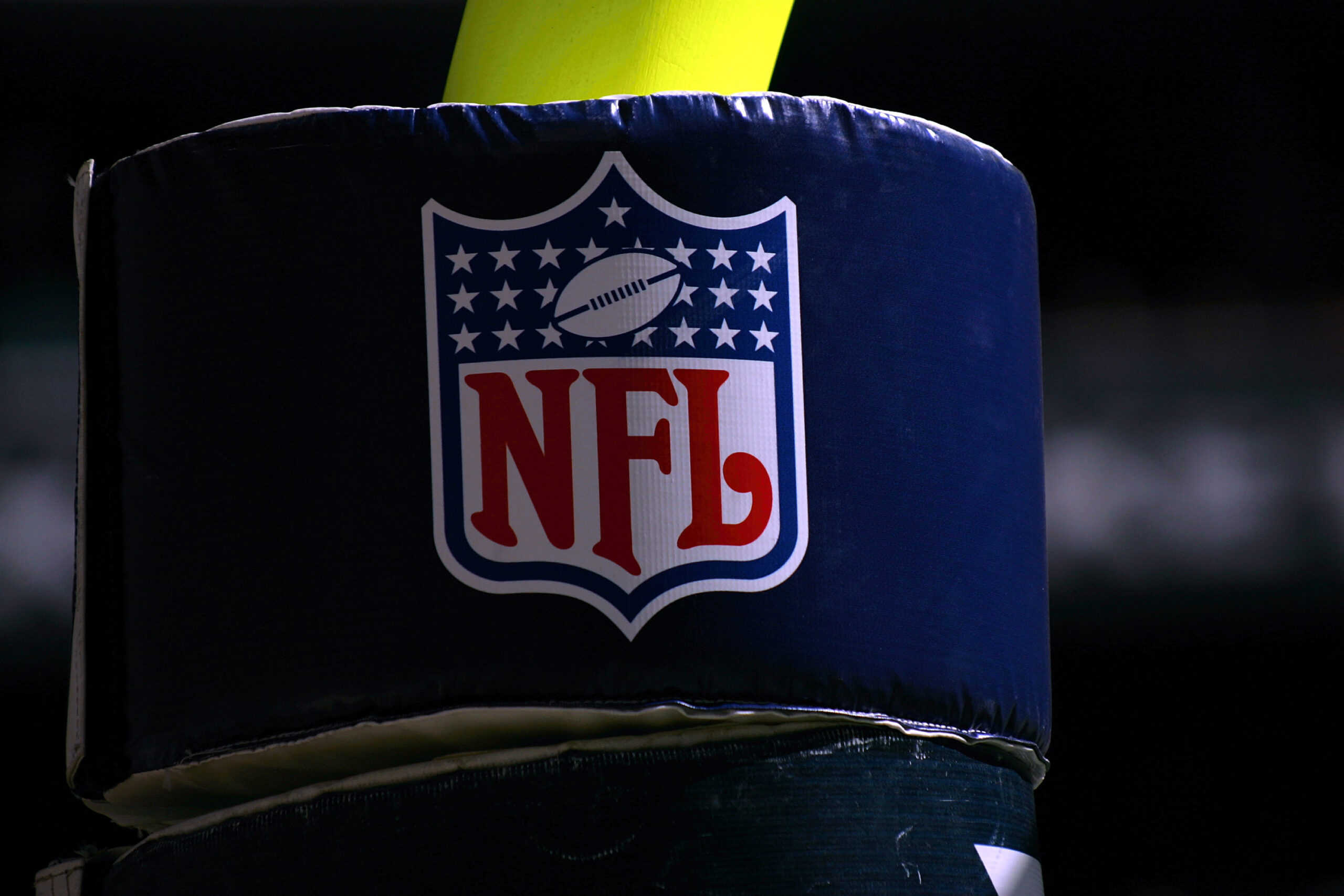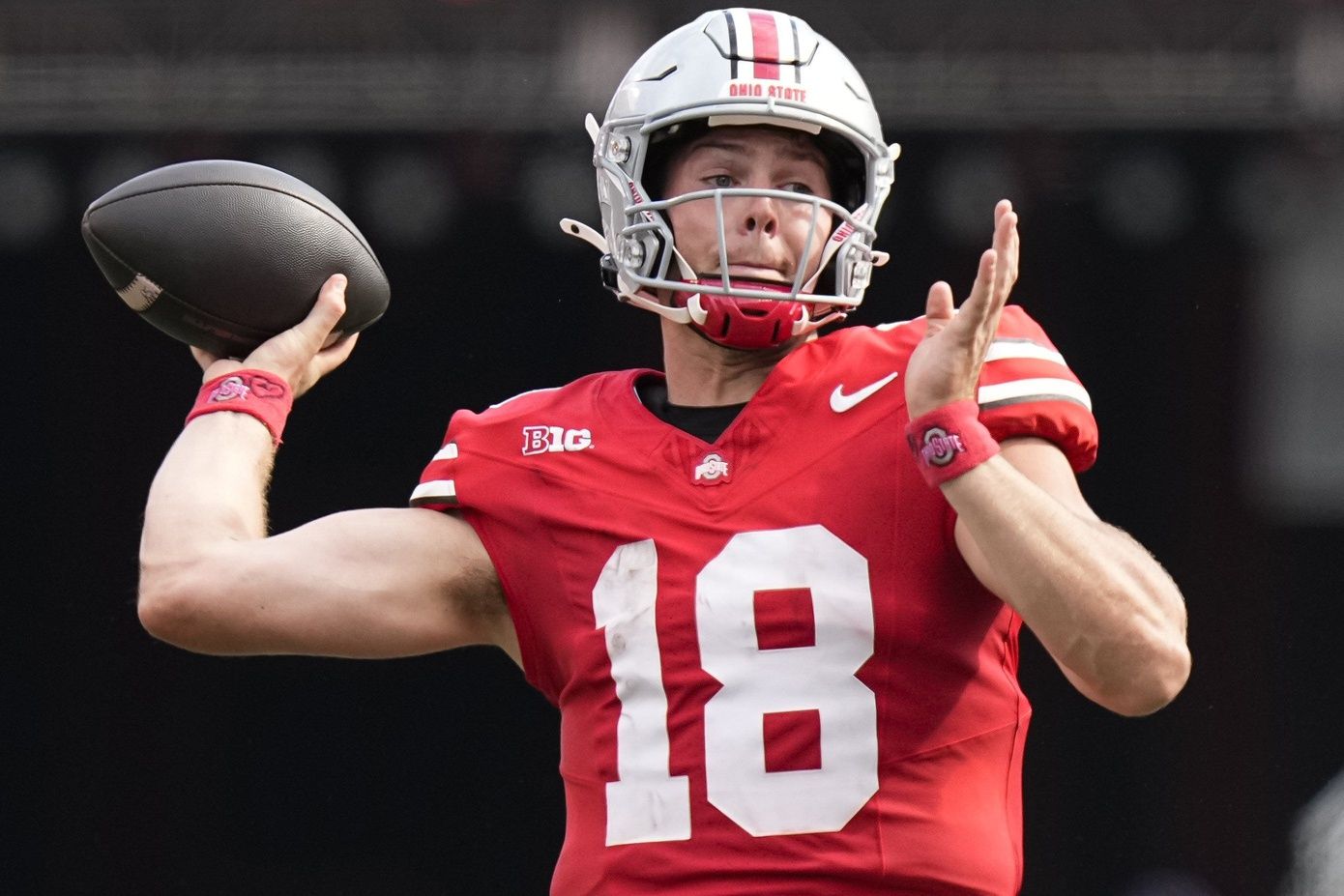[ad_1]
Over the next week, the National Football League’s players, coaches, fans and executives will gather for an event that was virtually unthinkable just 10 years ago: the Super Bowl in Las Vegas, the gambling capital of the United States.
Since the Supreme Court struck down, in 2018, a federal law that effectively banned sports betting outside Nevada — a prohibition once backed by the N.F.L.’s commissioner, Roger Goodell — the N.F.L. has embraced the gambling industry. It has forged partnerships reportedly worth nearly $1 billion over five years with sports betting companies, and permitted a sports book to operate inside one of its stadiums. Now it even has a team in Las Vegas, which the league shunned for decades because any affiliation was seen as a threat to the integrity of the game.
Yet the embedding of sports gambling so quickly into the culture of the league has resulted in jarring contradictions. The N.F.L. is pushing to popularize and benefit from sports betting while still guarding against the potential pitfalls that it long condemned. While the league donates money to promote responsible gambling, its broadcasts are peppered with advertisements for sports betting companies. The N.F.L. is part of a growing apparatus that encourages casual fans to regularly place wagers on games, while punishing league employees — most notably players — who might do the same.
The N.F.L. and other sports leagues “have moved into this area quickly, fully considering the revenue-related benefits to engagement in sports gambling, but not necessarily thinking about everything that could go wrong,” said Marc Edelman, a law professor and director of sports ethics at Baruch College in New York.
“Even if it makes complete sense to disallow employees from sports teams from betting on the games,” Mr. Edelman added, “there’s undeniably a level of cognitive dissonance” when N.F.L. players and staff frequently come across content encouraging gambling, including signage in stadiums and betting odds on N.F.L. telecasts, while doing their jobs. The league’s partnerships also give gambling companies the right to use the N.F.L. logo in their marketing and be a part of major N.F.L. events.
The N.F.L. says that its stance on sports betting, which is in step with the other major American sports leagues, changed with the shifting legal landscape, and that working with gambling operators allows it to better protect the game’s integrity. As with many positions the N.F.L. takes, though, the effects are magnified because of the league’s cultural sway. More than simply responding to the landscape, the N.F.L. is helping to shape it.
Americans legally wagered more than $115 billion on sports in 2023, according to the American Gaming Association, the national trade group for the gambling industry. Nearly 25 million more Americans bet on sports last year than in 2018, the group said, and the number of states where betting on sports is legal will reach 38 this year.
While numbers for the N.F.L. specifically are harder to parse, because not every state reports by sport or league, the gaming association referred to a market analysis from the investment firm Citizens JMP Securities. The report projected that around $1.5 billion would be legally wagered on next Sunday’s Super Bowl, more than 1 percent of the money bet legally on all sports last year.
There is scant data on whether the legalization of sports gambling has increased addictive behavior. But those who track the effects of gambling have worries. The National Council on Problem Gambling said its survey data pointed to a rising risk of gambling problems for adult Americans in the three years after the federal ban on sports betting was overturned.
Dr. Marc Potenza, a psychiatrist and director of Yale’s Center of Excellence in Gambling Research, described “a perfect storm” that could lead some people to develop a gambling problem. He cited factors including loosening regulations, the accessibility of mobile betting, heavy advertising and how much free time is spent on sports. Particularly vulnerable are young men who place high value on sports, Dr. Potenza said.
In 2021, the year the N.F.L. struck deals with its three sports book partners, it gave the National Council on Problem Gambling a three-year, $6.2 million grant that was used in part to modernize the help line that appears at the bottom of betting ads. The league’s contribution is a small fraction of what gambling companies pay to be part of the N.F.L.’s marketing apparatus, but it is the largest grant in the council’s history and exceeded the nonprofit’s grant total over the previous four years, according to tax filings.
“We’re in this now — we’re in this business,” said Anna Isaacson, the N.F.L.’s senior vice president of social responsibility. “What can we do to make sure that we’re not causing undue additional harm?”
The league’s approach to gambling violations within its own ranks, though, remains punitive. For decades, sports leagues have believed that gambling could damage the integrity of results — with worries over a player’s throwing a game because of a bet, for instance — so the focus has been on enforcement and punishment over prevention and treatment.
The N.F.L. prohibits league and team personnel from betting on any sport, while players are allowed to bet on sports other than the N.F.L., as long as they do not do so at the team facility or while on team or league business. While in Las Vegas for the Super Bowl, members of the Kansas City Chiefs and the San Francisco 49ers and the hundreds of league employees, many staying at Caesars Palace, are not permitted to play casino games and may enter a sports book only if passing through to another part of the hotel.
The N.F.L. said it educated 17,000 people on its policy annually, and last year, amid a spate of player suspensions, league officials began visiting teams to lead in-person training sessions with players. Players who are suspended for at least a full season are told that receiving counseling is one of the factors the league will consider when they apply for reinstatement, and the league said it shared resources on responsible gambling during its trainings.
The N.F.L. has not disclosed the number of employees leaguewide who have been punished under its gambling policy. The league had gone decades without any player gambling violations before the Supreme Court’s ruling, but 10 players were penalized this season, including seven who served season-long bans for betting on N.F.L. games. In September, the league toughened the penalties for players who bet on their own teams and reduced them for first-time offenders who bet on other sports while working.
Two former N.F.L. employees who were fired within the last two years for violating the policy said in interviews that they had not been offered the opportunity to go through rehabilitation and return to their jobs, as often happens for league employees struggling with issues like substance abuse. The former employees, who spoke on the condition of anonymity for fear of professional repercussions, said they had been fired without severance or benefits.
One said the person’s firing was for betting less than $1,000 on the N.F.L. and other sports four years earlier, through a company that is now a league partner. The New York Times confirmed the details by reviewing a record of the former employee’s account with the company. The other employee said a main concern for the league seemed to be the potential for any debts to be used as leverage against the employee.
Asked for comment on the firings, the N.F.L. said in a statement, “We take any threats to the integrity of the game seriously, and violations of our gambling policy may result in the termination of staff, who receive extensive training and other resources to assist them in complying with the policy.”
David Highhill, who was named the N.F.L.’s general manager for sports betting in 2022, said the top priority when writing and applying the league’s gambling policy was preserving the integrity of the game.
N.F.L. audiences, however, see a steady flow of advertisements from betting companies. In response to fans’ annoyance when ads from FanDuel and DraftKings for so-called fantasy football — in which fans pick their own teams of N.F.L. players — saturated game broadcasts in 2015, the league capped the number of sports betting advertisements at six per broadcast when it began accepting them in 2021.
Still, more Americans saw sports betting advertisements during N.F.L. games than on any other nationally televised programming in each of the last three years, according to data from iSpot, a TV measurement company. Three betting ads will run during this year’s Super Bowl broadcast, Mr. Highhill said.
Throughout the week leading up to next Sunday’s game, the business ties between the N.F.L. and betting operators will be on full display in Las Vegas. It is a booming business for the league, but it worries those who long fought to keep gambling away from pro sports.
“They would argue that they think it can now be controlled,” said former Senator Bill Bradley, a retired professional basketball player and a driving force behind the overturned 1992 law that effectively banned sports betting, referring to the N.F.L. and other leagues. “And I just don’t think it will be controlled. I think it will pervade the culture.”
[ad_2]
Source link
This website aggregates and curates news articles, blog posts, and other content from a variety of external sources. While we aim to link back to the original source, this site does not own or claim ownership of any articles, posts, or other content indexed on this site. The views, opinions, and factual statements expressed in each piece of aggregated content belong solely to its respective author and publisher. We make no representations or warranties regarding the accuracy or completeness of aggregated content. Visitors are advised to verify facts and claims through the original source before reuse or redistribution.



